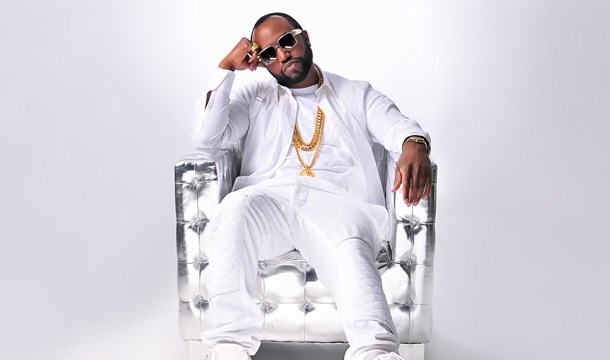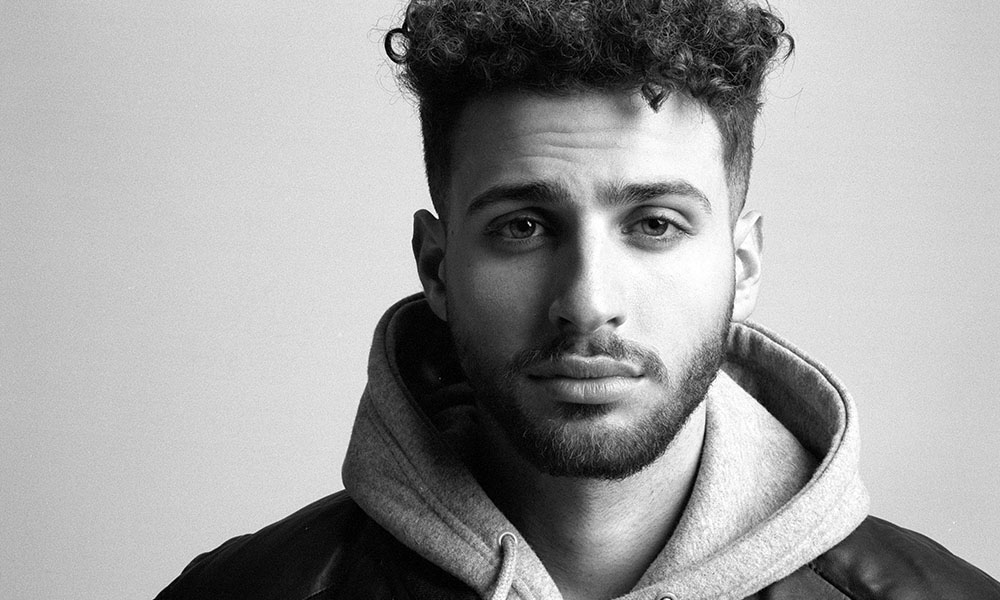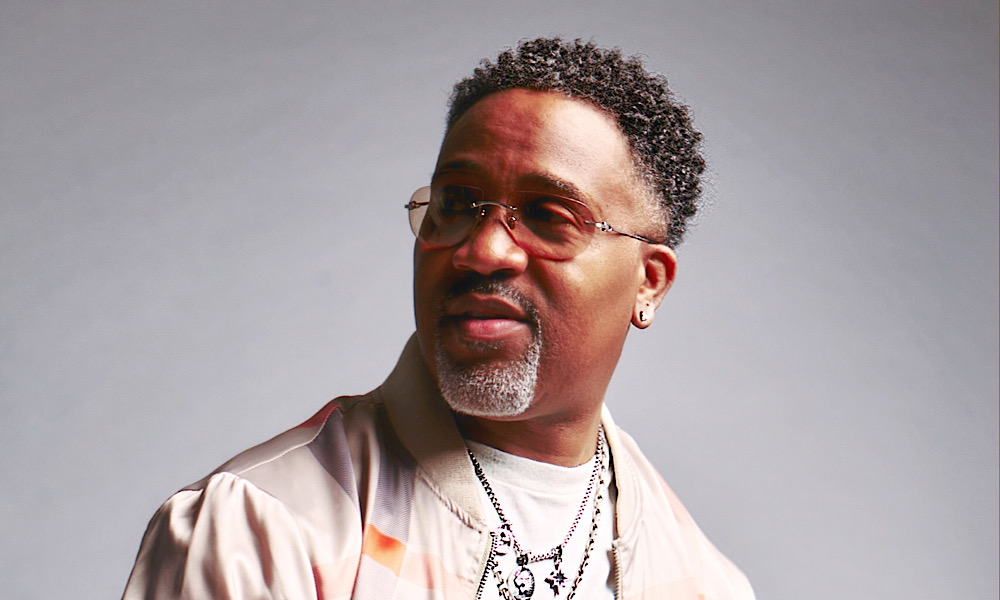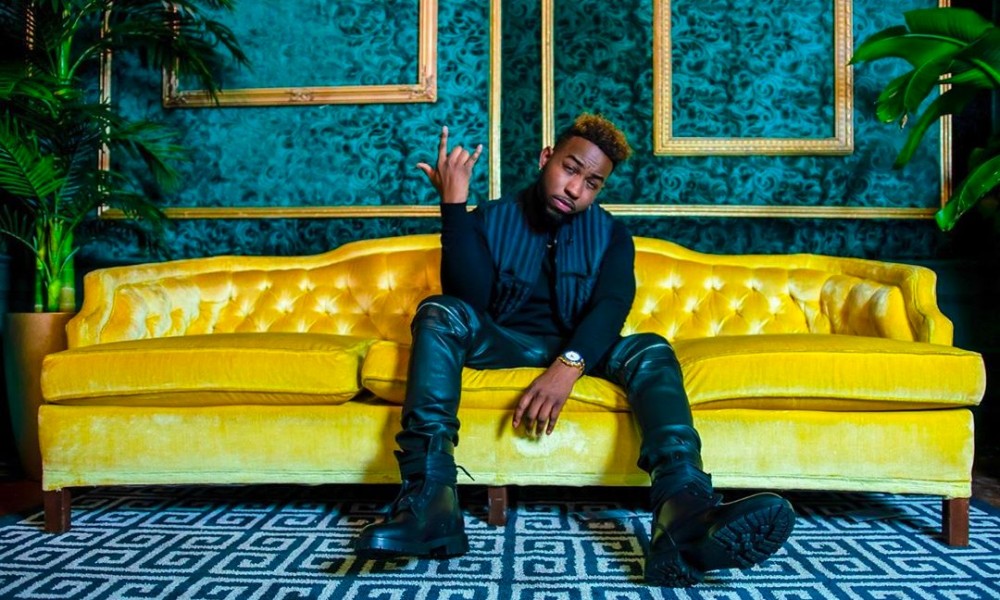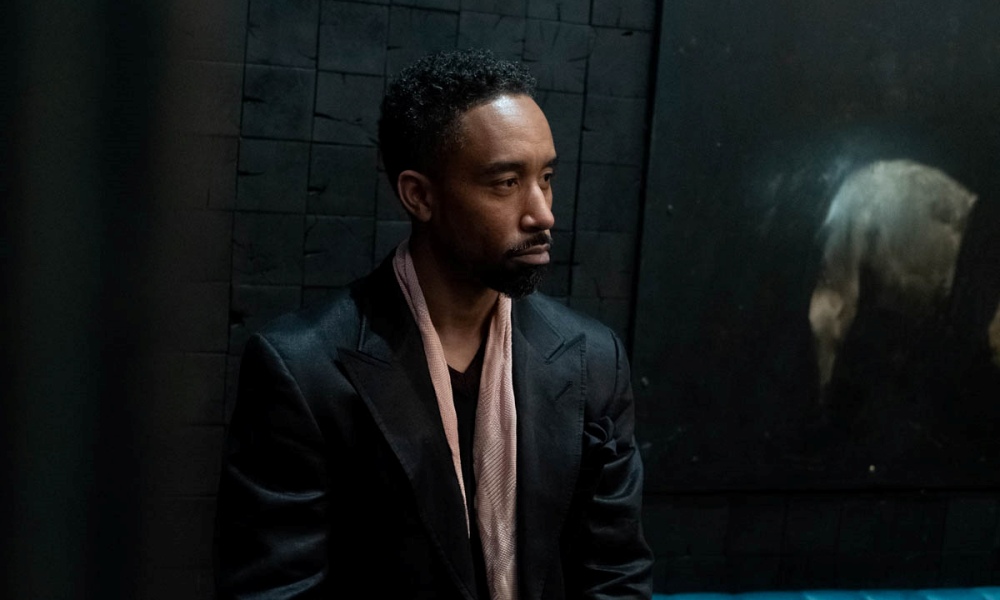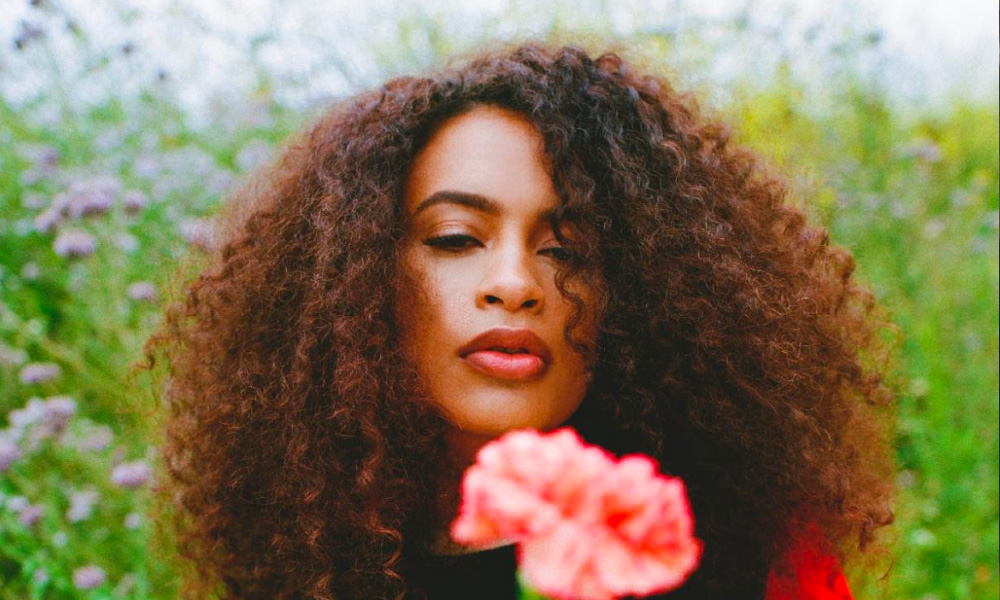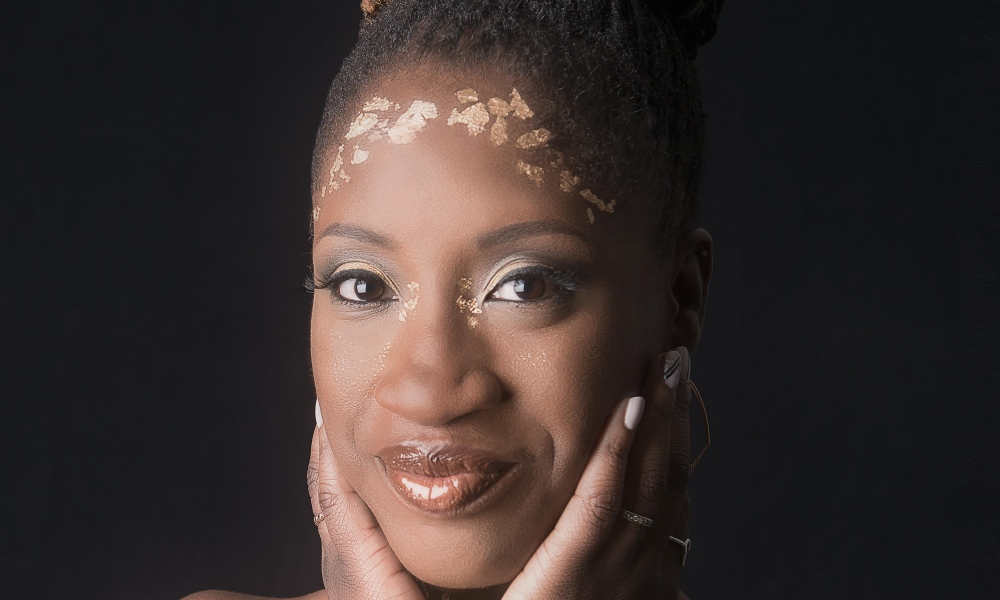You may not have known, but Rico Love is already a seasoned chart-topper. If you look beyond his current single, “They Don’t Know,” you’ll see a string, no, more like a rope of hits on songwriting credits for the likes of everyone who’s anyone blazing the charts and airwaves in the past 5+ years. It’s just that now, his name is the one in bold next to the chart numbers, thanks to the offering from his first EP, 2013's “Discrete Luxury,” and his newly released follow up tape, “El Presidente.”
The busy, human song machine caught up with Singersroom while en route to host the BET Music Matters showcase at SOB’s in New York City this past Tuesday (December 10), which featured performances by Curtis Fields, Austin Brown, Ro James, Mateo, and Bobby V. Among other things, he dished about his latest projects, the origins of his famous tagline “Turn The Lights On,” good times with renowned DJ David Guetta, the simple way he unwinds, and his passion about preserving the mystery of the music industry.
How does “Discrete Luxury” compare to “El Presidente?”
What happened with “Discrete Luxury,” obviously, we got a top 10 record out of it with “They Don’t Know,” but I wanted to show my side as an artist, because I started going to different markets, and they would say “R&B singer Rico Love” and I’m like, I’m not an R&B singer, I just happen to sing, and I write R&B, but I’m just an artist. So, I think with “El Presidente,” it was my opportunity to really present myself totally in all aspects of who I am; the hip-hop element is dominant in this particular project. I think it’s just the opportunity to spread my wings, let everybody know exactly who I am, especially with the success of the record, now people checking for you. That’s the perfect time to drop more music and people are more receptive to it.
You’ve written so many hits, what’s your recipe for a hit song?
My recipe for a hit song is to say the things that are most commonly said in a way that’s never been said before; I think that’s the key. You gotta really find a way to speak to people in the most direct and simple form and a lot of times, people try to come up with these weird, crazy concepts, and they lose. At the end of the day, I wrote “There Goes My Baby” by watching a woman get dressed. I wrote “Sweet Dreams” about somebody who’s so perfect for you and so horrible for you at the same time; those that’s so common in life that people see and hear every day is about putting your own spin and twist on it that’s clever enough to capture the listener.
You’ve written many a love song, what’s the most romantic thing you’ve ever done for a woman?
I think the most romantic thing I’ve ever done for a woman is to help her see her dreams come true. To me, that’s the definition of love and passion and caring for somebody; to empower them to care and take care of themselves, as opposed to being there to do it for them.
You’ve also spit some hot verses: Who influences your rap side?
Mase is like a big brother to me, he kinda raised me in this game. A lot of people hear the Mase influence. I think I have the right to borrow the Mase flow; he gave me permission personally (laughs). So, a lot of times you might here that in the flow and we’re kinda similar in character, that’s why we always got along, even at a young age. And Biggie was always my favorite MC, Pac of course, and Jay. But believe it or not, I’m a huge fan of G. Dep. A lot a people might look over G. Dep cause he had a short stint in the game, but I always looked up to him as a MC.
What’s a funny moment/memory you have working with the stars you’ve worked with?
I worked with David Guetta, and I took him to this club in Miami called Take One; it’s like one of the ghetto-est clubs in the world. He wanted to go every night, and we literally went to Take One, like, three times in a week and that was hilarious to me cause you’d never expect this huge French DJ, who gets half a million dollars to DJ every night in front of 200,000 people, to be wanting to go to the ghetto-est clubs on the planet, but we had a good time.
As one of the industry’s most sought-out talents, you’re hella busy. Where do you go/what do you do to unwind?
I have a home in Miami that I love so much; it’s like my favorite place to be. And my favorite thing to do is watch “First 48,” “Law and Order,” “Homeland,” and “Scandal.” I just like sitting on my couch with my son sitting in front of me playing with his toys, and I’m watching TV. That’s like my favorite thing to do, believe it or not.
What’s your take on Miley Cyrus’ new direction?
I don’t have a take on it honestly; it is what it is. What I do believe is that a lot of artists use urban culture when it’s useful for them. When they can use it for their advantage, they put a grill in their mouth, or they twerk, or they do things that we take very serious, and it’s a part of our culture; I feel like they use it. And that’s cool; I don’t really be bitter on it but I really don’t have an opinion on it, I feel like it is what it is, if people wanna go for that, then they go for that, I’d rather just not say anything about it. I don’t wanna come off as the grumpy guy, but… (laughs).
Where did your famous tag line “Turn the lights on” come from?
I used to hang out in this club in L.A. called Area. It’s called Greystone Manor now, and they used to play this song by Pink Floyd called “The Wall,” which is one of my favorite songs; Pink Floyd is one of my favorite bands. One particular part of the song “Hey teacher, leave those kids alone,” and the lights would start flashing in the club, so I would say “turn the lights on” to myself in my head, and sometimes out loud if I was drunk enough. And it stuck, so one day I was in the studio, and I started saying it on the records, and a friend of mine said, “yo, you should say that in all the songs you write,” so I was like “aight, cool”, and it became a tag. Michelle Williams is one of the first artists that would say it, but Beyonce said it on “Sweet Dreams,” and I wrote the theme song for “Sex and the City” the movie, and when Fergie says it at the beginning of the movie, it really took off from there. It’s one of those things that you believe in, stuck to, and that was my brand. Because before myself, Sean Garrett and The-Dream, songwriters weren’t popular, we kinda pioneered that whole wave to make songwriters really popular before being artists. Babyface was obviously Babyface, but he was known as an artist as well, that’s how we know the songs that he did. But we were the guys who made it like, “oh these guys write songs” and I think it took stepping out there, branding things. People would make fun of me, like “why you put ‘turn the lights on’ in all these songs? Nobody’s gonna buy the songs if you keep doing that,” but I believed in something, and it stuck; now it’s been said all over the world for the past 4 or 5 years now. It’s very sentimental to me, means a lot, that’s why I named my album “Turn the Lights On.”
What can you tell us about your full-length album, “Turn the Lights On”?
I’m just putting it together; I haven’t even decided on a direction. I’m just trying to flood the market with music. I’m not trying to put out an album until I become a household name. I don’t wanna force an album down anyone’s throat; I want people to want the album. I want it to be the most anticipated project, and when that happens, I’ll be satisfied and comfortable enough to put out an album. Right now it’s the beginning. You might say, “oh, he got a hit record, must be an album coming soon;” nah. It’s a hit record on radio, now we need 4 or 5 more hit records. We need to make sure we explain to people who I am, get out here, touch the people, hit the streets, hit every spot in the country, everywhere around the world to the point where before I put out my record, everyone should know who I am. That’s how you sell albums. A lot of times labels force these albums on people. A hit record ain’t gonna do it; it’s not enough. People have to know you and be interested in your story. People don’t buy Kanye’s album just because he makes amazing music; he does make amazing music, but they wanna know about him, they wanna know what he has to say, their interested. If you don’t spark that interest in people, you’re wasting your time; you’re just out here making songs. And they’ll buy your songs, and when it’s time for the album, they won’t really care about it because they bought the single, cause that’s all they cared about.
Do you think the industry has changed to be more single-driven?
I don’t think the industry has changed to that. You gotta think about it, the people who really dominated; the Adeles of the world, the Kanyes, you got Jay Z, Justin Timberlake, you got Lorde, I feel like she’s gonna do good numbers. The people who matter are gonna continue to sell albums. The fluff is always gonna be there. It’s just that now, people are keyed in, and we know more about it now; now it’s so easy to make music and it’s so accessible. It’s always been this way; there were always a bunch of fluff artists that were here today, gone tomorrow. So I don’t think the industry has changed in that sense, I think there’re just a lot more of it [fluff] and a lot less quality because people don’t respect the music process because we give them too much information. I don’t know how open heart surgery operates, that’s why I’m so intrigued by a surgeon who does open heart surgery. A kid thinks they know how I write a song, so they’re not really so much intrigued, cause they’re like ‘oh I got that same equipment in my house, I can do the same thing.’ We gotta put the mystery back in music, and really become genius again and start respecting the geniuses and not shying away from them. When you do that, you’re gonna have more artists who really matter, instead of a bunch of kids sitting in their room making songs that don’t really care about the culture and the brand and just wanna be famous. Then you got the other kids, who really love and respect it, and it’s an art to them; they would die without it. But at the end of the day, then business is suffering, but people still sell massive amounts of albums regardless of the accessibility of the music.
